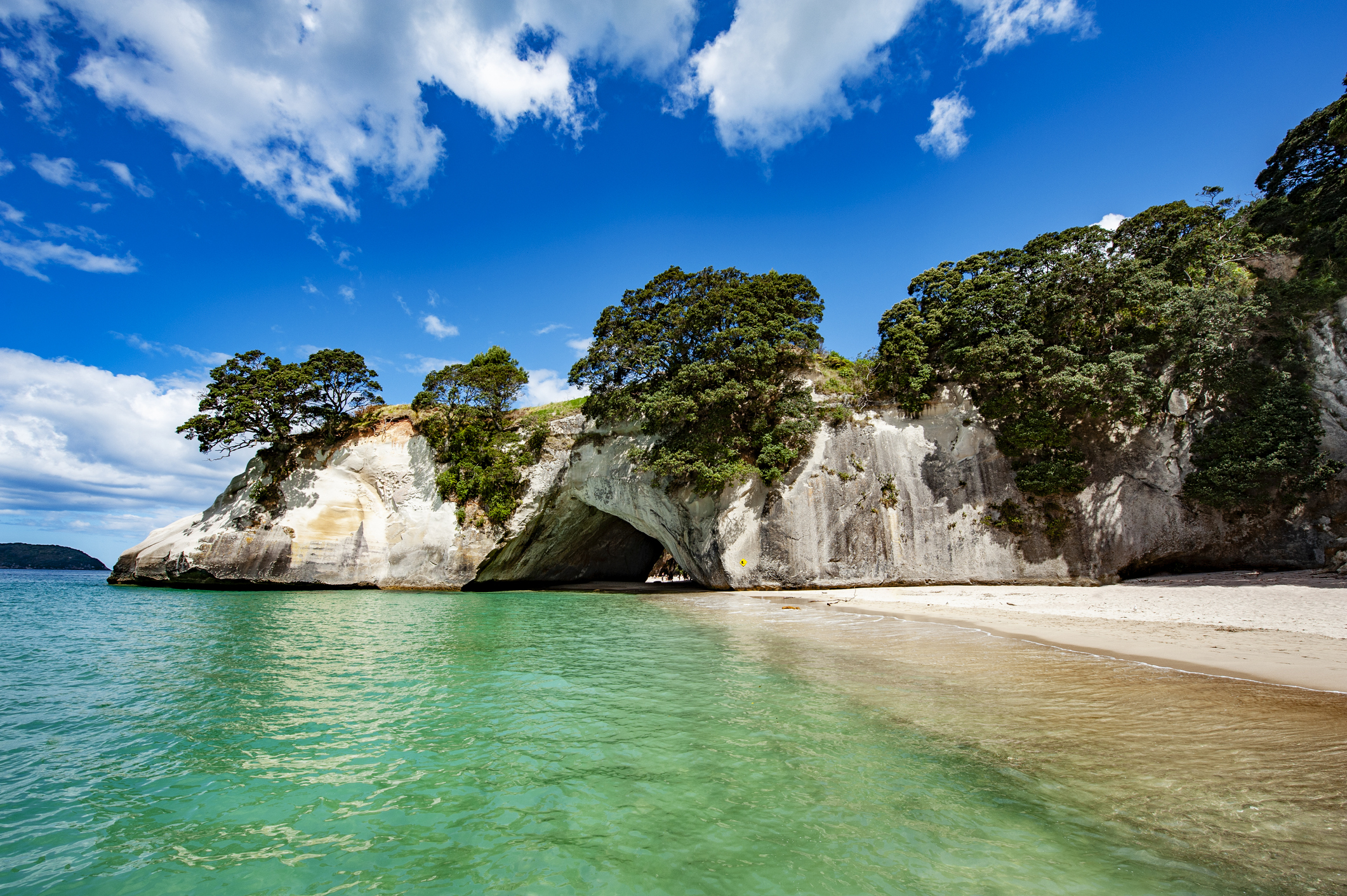
By Natalie Akoorie of RNZ
A short-term fix to reinstate walking access to the famed Cathedral Cove on the Coromandel Peninsula, cut off by extreme weather during Cyclone Gabrielle, will be ready in time for summer.
Conservation Minister Tama Potaka announced a $25 million boost for conservation projects today, including $5 million to plan, build and maintain a track at the tourist attraction near Hahei.
"Some of the projects include reinstating walking access to the beautiful Cathedral Cove - Mautohe in Coromandel after terrible damage from Cyclone Gabrielle," Potaka said.
"I have confirmed a short-term fix in time for summer."
It comes after the 2.5km track was officially closed in February due to several slips that took out parts of the track, including some steps leading down to the beach and the rock.

In January, the Department of Conservation said there was no guarantee a walkway would ever reopen.
Cathedral Cove can attract up to 300,000 visitors per year and some tourists have reportedly ignored the road cones blocking access to risk the walk, despite the warnings and a rāhui placed by Ngāti Hei.
In May, DOC announced options it was exploring to reinstate the walking access, without which local businesses said tourists were diverting to other North Island spots such as Rotorua and Taupō.
Potaka said he was "absolutely committed" to a short-term fix - a replacement track - that would be open by summer.
That would involve various engineering and other fixes because the track was "wiped out" with parts completely gone, Potaka said.
The rest of the $5m would be spent on longer term options to make provision for access to Cathedral Cove, including parking needs.
"I know people are genuinely enthusiastic about restoring access because of the contribution it makes not only to the economy, but also to the community and the environment."
DOC Hauraki Waikato and Taranaki regional director Tinaka Mearns said work had begun to reinstate the access.
She said finding a way to traverse the worst landslide on the track had been a challenge.
"Undamaged sections of the track will be reconnected via a new boardwalk and steps across a section of land that is more stable than other potential reroutes. Steps at the bottom of the track, where it reaches the beach, will also be rebuilt."
Mearns said last summer, visitors surveyed rated the marine-based experience to Mautohe Cathedral Cove as one of the best offered to a DOC-managed site.
"Reinstating walking access enables DOC to further support local businesses and the community while working towards more sustainable and careful management of the site.
"This will be complemented with ongoing work, over the next 12 to 18 months, to develop a long-term visitor management solution."
DOC knew the community was keen to see reinstatement occur as soon as possible, she said, but ground conditions, weather and tendering and procurement processes had to be considered before physical work could begin.
The department would also try to reduce risk to walkers including advising people not to use the track when weather or geotechnical-related risks were considered too high, she said.
"A level of risk will always be present at this site - landslides and rockfalls will continue to be an ongoing feature of the landscape."
The Grange Road car park in Hahei would remain closed while DOC worked through the practicalities of public access to the reserve.
The car park received significant surface/foundation damage, slumping and cracking, through extreme weather events and heavy vehicle use, Mearns said.
The money for the track will come from a $35 levy on international visitors to New Zealand, established in July 2019, to invest in tourism growth that supported and protected the environment.
National MP for Coromandel Scott Simpson said reopening the walking track will be a significant boost for the entire Coromandel Peninsula.
"I'm delighted that Conservation Minister Tama Potaka has underpinned his intention to get the walking track at Cathedral Cove reopened by this coming summer.
"While water access to Cathedral Cove has remained available, it's been over 17 months since the walking track was closed. This closure has been felt by local businesses who have dealt with lower visitor numbers and the uncertainty surrounding the track's future."
The news should give businesses confidence that the location will be fully reopened for summer, he said.
Further funding for other projects
Of the $25m, $3.65m would be spent on eradicating pests including pigs, cats and mice from Maukahuka/Auckland Island as well as $6m to enhance and expand DOC's network of short walks.
A new programme to support the maintenance and management of Huts of Recreational Importance through partnerships would receive $4.2m in funding over the next four years, while work to eradicate the aggressive coastal weed known as sea spurge would receive a boost of $1.28m toward protecting New Zealand coastlines.
There would also be $5m invested over the next three years in information and advocacy activities to connect people to nature and visitor experiences across the country, aimed at making it easier for people to get involved through activities like donating, volunteering and investing.
Potaka said as a result of the funding boost, New Zealanders would get to enjoy more of the country's natural beauty.
"Te taiao (our environment) is critical for the country's present and future.
"Whether it's the sound of birds in a forest or the sight of whales in the sea - we have intergenerational responsibilities to protect and enhance te taiao so future generations can visit and enjoy too."
The eradication of pests from Auckland Island was a key step in more than 30 years of work restoring the Subantarctic World Heritage area, he said.
"Te Papa Atawhai - the Department of Conservation and I are always looking to better protect for our country's rich biodiversity and special places.
"The International Visitor Levy supports major projects protecting and enhancing New Zealand's beautiful flora, fauna and making it easier for New Zealanders to experience nature."















